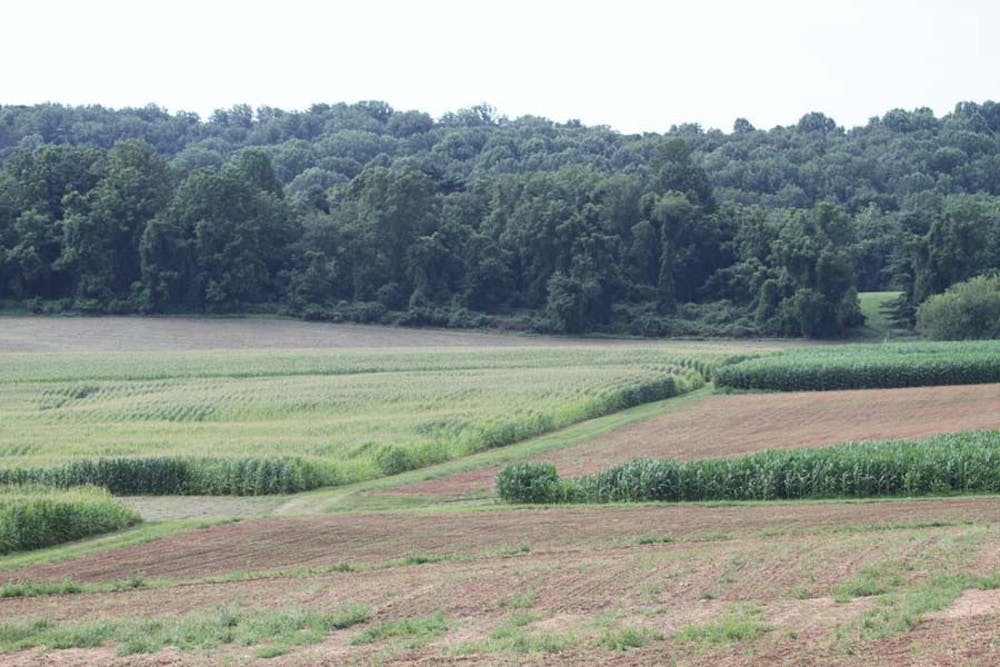
Penn recently signed an agreement with the Chester County community to preserve the agricultural land.
As surrounding Chester County becomes less rural, the School of Veterinary Medicine is helping to preserve the area’s roots.
Last week, the Vet School signed an agricultural conservation agreement to preserve more than 145 acres within its existing rural campus, known as the New Bolton Center, in the Philadelphia suburbs.
The decision to sign the agreement came from concerns not only about environmental conservation but also community relations.
Gwendolyn Lacy, executive director of the Land Conservancy for Southern Chester County, said the decision to sign the agreement to conserve the land that’s part of the New Bolton Center was partially a reaction to Chester County’s quick growth.
Chester County is primarily rural, but it has one of the fastest growing populations of any county in Pennsylvania. She said in the face of this change, the agreement served as a “basic assurance for everyone that it’s still going to be open land for the next 25 years.”
Related: Away from campus, teaching, service and farm life
The relationship has significant benefits for both Penn and the local community.
Corinne Sweeney, associate dean of the New Bolton Center, explained that the rural setting “allows vet students to learn [about large animal care] from the ground up,” and “it was hugely beneficial to the community to protect farm land.”
In addition, Katherine Unger Baillie, Penn’s Science News officer said, “Penn Vet is heavily involved [in the community] because farmers in the area depend on the vets to take care of their livestock.”
The New Bolton Center is home to the Vet School’s large animal hospital and includes a dairy and a farm. Penn has owned the land since 1952.
Baillie explained that the acres included in the agreement, legally known as an easement, have been “part of the campus for decades” and are among those “currently being used as farmland.” The easement had been signed specifically to “ensure that the land’s use won’t change.”
Lacy explained that the agreement is meant to preserve the land which animals already use as pasture land. In addition, she said that the property has natural features that are important to preserve. “There are ponds, creeks and wetlands on this property. It’s more than just a pretty face.”
Most easements generally are in perpetuity, but the future of this easement is uncertain after 25 years. However, Sweeney said that Penn Vet has been “part of this community for a long time … we value the relationship.”
The Daily Pennsylvanian is an independent, student-run newspaper. Please consider making a donation to support the coverage that shapes the University. Your generosity ensures a future of strong journalism at Penn.
DonatePlease note All comments are eligible for publication in The Daily Pennsylvanian.





